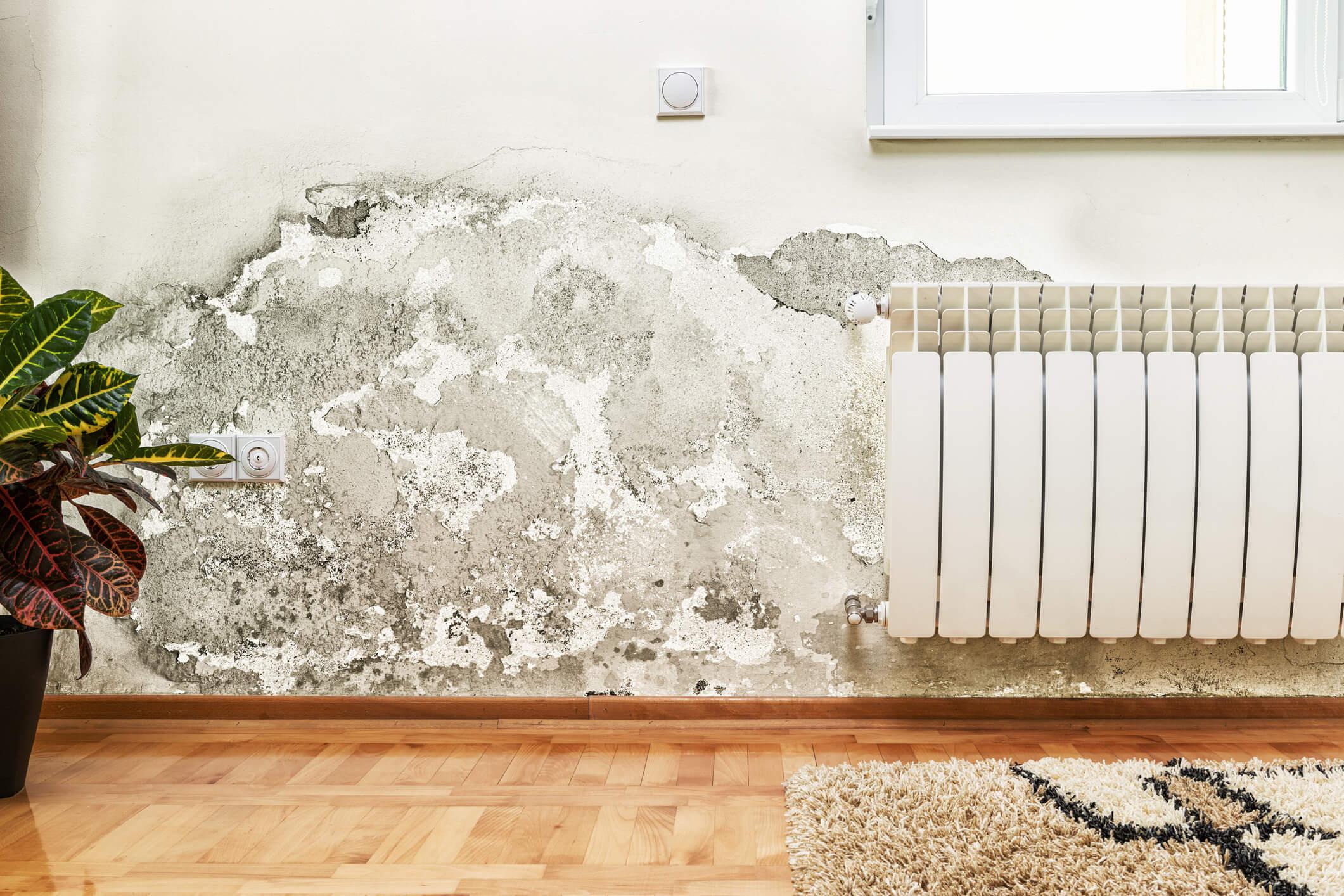What Does Mold Sickness Feel Like? Signs Your Home May Be Making You Sick
June 30, 2023

We’ve all heard warnings that mold is bad for our health. But how do you actually know when you have mold in your home and it’s making you sick?
Hidden mold in an air conditioner can cause sickness, or it can be a visible damp patch in the bathroom growing black fuzz. Learn the signs that you have mold in your home and it’s making you feel unwell.
Signs Mold Is Making You Sick
Mold is both an allergen and a general irritant. While some people’s bodies handle it better than others, most exposed to large patches of mold for long enough periods experience some physical reaction to it.
The onset of mold sickness can be slow as toxins from the spores build up over time, or fast due to an allergic reaction. Every person is different, but you’ll likely experience some combination of these symptoms:
- Headaches or migraines
- Nausea
- Fatigue or brain fog
- More frequent asthma attacks
- Sneezing and coughing
- Shortness of breath or wheezing
- Chest tightness
- Stuffy or runny nose
- Postnasal drip, which can feel like a sore or phlegmy throat
- Itchy or watery eyes
- Itchy nose and throat
- Dry, scaly skin
- Red, irritated rash
Many of these signs overlap with other illnesses. Visit your doctor to discuss these symptoms, especially if you experience them regularly.
If you notice any of these symptoms, mold could be at fault. Hidden leaks from pipes in basements and crawl spaces may be providing moisture for growth, or it could be your air conditioner or ductwork or simply a matter of too much summertime humidity in the household.
If the mold growth is extensive, you may be able to smell it; mold usually smells musty and/or damp. If you still can’t find the source, the experts from DRYmedic® will uncover it during our inspection.
Can Mold Inside Walls Make You Sick or Does It Need to Be Exposed?
Yes. Even if you can’t see it, mold can make you sick. Spores can spread throughout your home, even from relatively contained areas like inside the wall. Insulation and drywall may become soaked from a leak, providing the perfect place for mold to flourish into a large colony before you can notice it, then spreading into other areas of your home as spores move through open spaces or ductwork.
Does Mold Cause Coughing?
Yes, mold can cause coughing. It irritates the nose and throat, which can lead to both sneezing and coughing as your body tries to get rid of the irritant. Inhaling mold spores can also trigger coughing in people with allergies or an asthma attack, for those with asthma.
Can Mold Cause a Sore Throat?
Yes. Mold can cause postnasal drip, which may manifest as a sore throat. If you have a mold allergy, the triggered immune response may result in a sore, inflamed throat and sinuses. If you develop a chronic cough or sneeze, the repetitive irritation can make your throat sore as well.
How Do You Tell If Mold Is Making You Sick and Not Something Else?
Have you noticed any changes in your home that indicate you could have a mold problem? An increased feeling of dampness in the air or a musty smell may tell you there’s mold around. If you’ve had any work done to your plumbing recently that didn’t go quite right or any areas in your home that were open to the elements, those issues could lead to water that supports mold growth.
If your symptoms reduce or disappear when you’re away from home, schedule an expert for mold inspection and remediation.
Professional Remediation Clears out Mold So You Can Heal
Your home should be a safe place to relax. When you’re looking for mold removal companies in Indianapolis, call DRYmedic. We’ll respond quickly to identify your mold issue and, if necessary, provide thorough and safe IICRC-certified mold removal. Call (317) 759-8432 or contact us online to address the growth in your home.